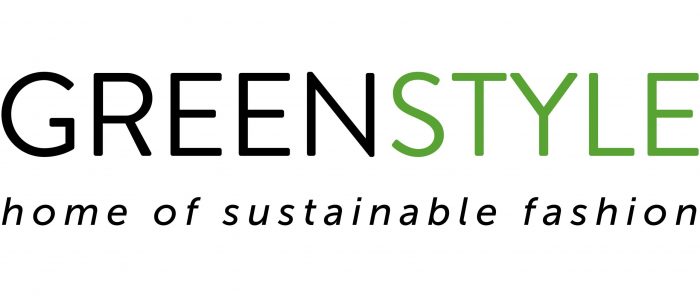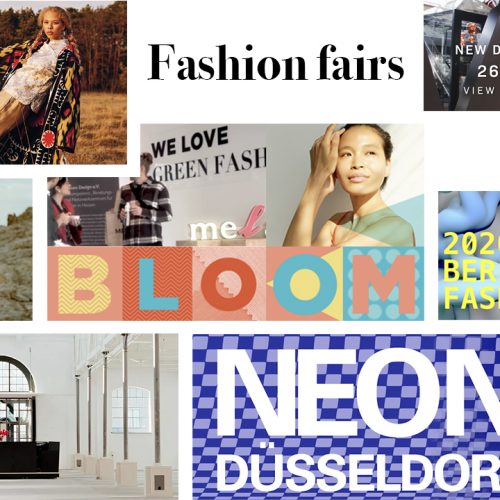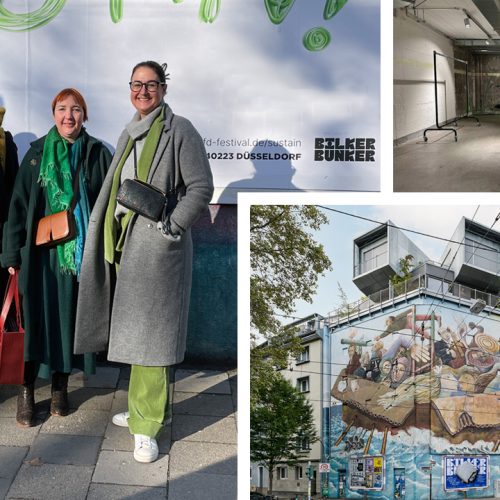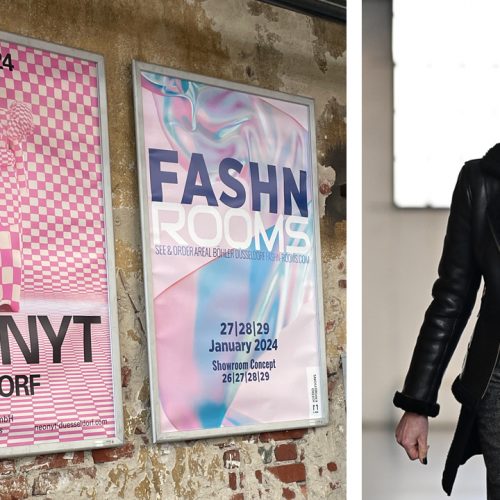From July 22 to 24, 2023, the Neonyt will take place in Düsseldorf for the second time. With established brands and exciting newcomers. In order to ensure that the area in Areal Böhler is about actual sustainability, all brands are checked using a strict catalog of criteria. The result? All brands are “Neonyt approved”. In the “5 Questions to” interview, sustainability expert Lavinia Muth reveals which criteria must be met.
What is a sustainable material? How does Neonyt define a sustainable material?
Lavinia Muth: It’s a really complex question, but we at Neonyt have tried to break it down for ourselves and our partners, and we define a sustainable material as one that maintains the status quo in terms of ecological impact and that Causes no further damage to people and the planet and in the best case even gives back, e.g. to the soil, more than is extracted from cultivation and harvesting. At Neonyt, we define the following materials as acceptable: recycled or organic cotton; recycled or biodegradable polyester, recycled or biodegradable polyamide, innovative regenerated fibers (e.g. Lenzing fibers, Re:Newcell fibers), RWS-certified or traceable or organic wool, RAS-certified or traceable alpaca, recycled down, recycled or IVN Best certified leather.
What else can a fashion label do for the climate, apart from paying attention to materials?
Lavinia Muth: Companies and brands can do so much besides doing less or more good. We believe that real impact can only be achieved holistically. So it is not enough to use an alternative material to be considered sustainable. Doing a charity drive once a year is not enough to be a good business. All aspects of business activities such as logistics and packaging, marketing and human resources should be reviewed and measured against indicators to reduce carbon emissions and other waste and harmful materials. We should all strive for a world without garbage.
What does human rights due diligence actually mean and how do I do it as a fashion brand?
Lavinia Muth: Human rights due diligence is the absolute basic requirement that a company should fulfill in order to be responsible. It means that a company carries out regular risk assessments to ensure that human rights standards are not violated within its own company and in the supply chains. Unfortunately, this has not been done properly in the fashion industry in recent years due to shifting issues and responsibilities. Thanks to new laws in Germany and the European Union, European fashion brands are now obliged to check what risks exist in their supply chains, to what extent grievance mechanisms are implemented and other things. This can only be done by the company itself and is based on respectful business relationships and, above all, respectful communication.
What is the difference between a minimum wage and a living wage; when is a wage “fair”?
Lavinia Muth: A minimum wage is a wage that is usually agreed through negotiations between government, industry and sometimes unions. We know that in many of the countries where our clothes are made, the national minimum wage is often not enough. That is why we are committed to paying so-called living wages. A living wage allows workers to provide for themselves and their dependents’ basic needs—including food, housing, education and health care—as well as some income for unexpected events. The living wage should be earned in a normal working week of no more than 48 hours, before any bonuses, allowances or overtime and after taxes.
What does transparency and traceability mean? Why is it so important for more sustainability in the fashion industry?
Lavinia Muth: In the fashion industry, transparency means that information about how, where and by whom a product was made is made publicly available. Being transparent means publishing all information about every actor involved in the production process, from start to finish, and it allows customers to know exactly what they are buying, with details from every step of the production process. To create full transparency, traceability is key. Supply chain traceability is the tracing of the origin and journey of products and their ingredients from the beginning of the supply chain to their end use. By disclosing the supply chain and passing on this data, a transparent procurement and development process is guaranteed. Applying traceability to fashion industry supply chains means consumers can make their purchasing decisions based on what appeals to them personally and the environmental and social impact of the item or product.
Become an exhibitor at the 2nd edition (July 22 to 24, 2023) of Neonyt in Düsseldorf >>>
*About Lavinia Muth
Lavinia works as a spokesperson, mentor, advocate and consultant on ethical business practices and social justice with more than 15 years of experience in international projects (focus: textiles and community based agriculture). Before founding her own company in 2022, she led the sustainability activities of the German fashion brand Armedangels.
Source: Lavinia Muth for Neonyt Düsseldorf







